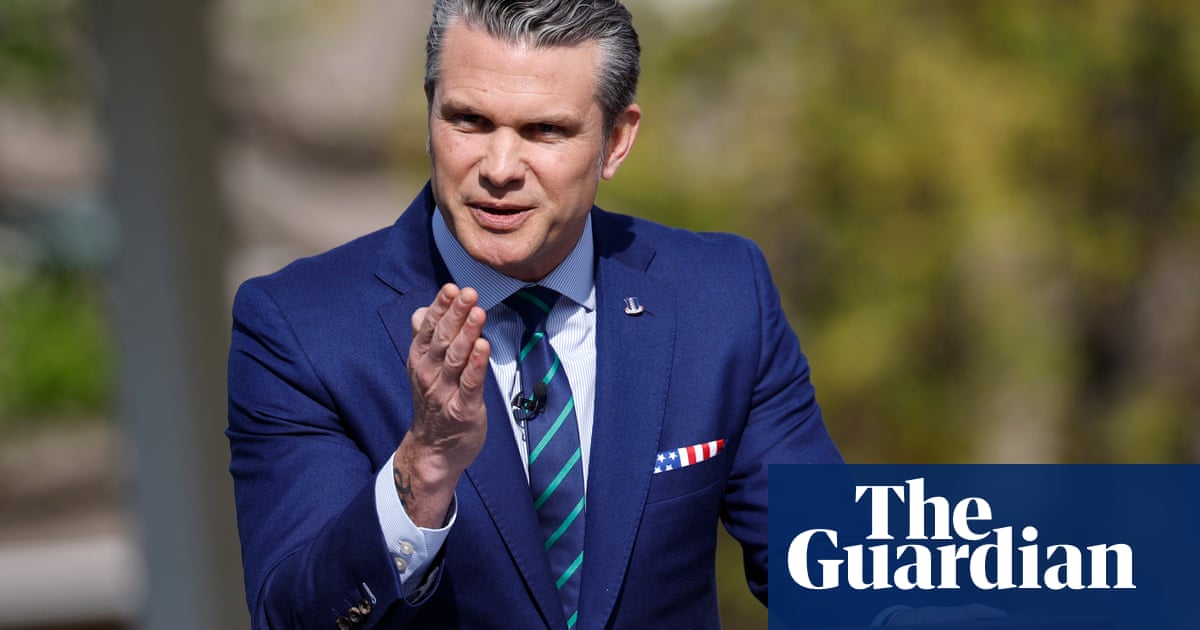Pete Hegseth, the defense secretary, has abruptly banished the Pentagon’s Women, Peace and Security program as part of his crusade against diversity and equity – dismissing it as “woke divisive/social justice/Biden initiative” despite it being a signature Donald Trump achievement from his first term.
In apost on X, Hegseth wrote: “This morning, I proudly ENDED the ‘Women, Peace & Security’ (WPS) program inside the [Department of Defense]. WPS is yet another woke divisive/social justice/Biden initiative that overburdens our commanders and troops — distracting from our core task: WAR-FIGHTING.”
The defense secretary added the program was “pushed by feminists and left-wing activists”, claiming “Politicians fawn over it; troops HATE it.”
But the decision is raising some eyebrows as the initiative was established during Trump’s first administration when he signed the Women, Peace and Security Act in 2017, making the United States the first country in the world to codify standalone legislation on the matter.
The Trump campaign even courted women voters byciting the initiativeas one of its top accomplishments for women on its website.
Attempting to square this circle, Hegsethlater claimedthe Biden administration had “distorted & weaponized” the original program. “Biden ruined EVERYTHING, including ‘Women, Peace & Security,’” he insisted.
The Pentagon did not respond to a request for comment clarifying what will change in this iteration of the WPS following the secretary’s announcement. Hegseth had indicated the Pentagon would comply with minimum requirements under federal statute but would lobby to defund the program during the next budget cycle in his initial post.
The defense secretary’s problems with the program could also create awkward tension with multiple Trump cabinet members who were architects of the very policy he’s now dismantling. Kristi Noem, the Homeland Security secretary, wrote the 2017 legislation while serving in Congress and Marco Rubio, the secretary of state, co-sponsored the Senate version.
Rubio,just this month, called it “a bill that I was very proud to have been a co-sponsor of when I was in the Senate”, at the state department’s international women of courage awards ceremony.
Mike Waltz, the national security adviser, also supported other legislation to strengthen the WPS and served as co-chair of the bipartisan Women, Peace and Security Caucus.
And first-daughter Ivanka Trump, back in 2019, also publicly promoted the program, writingon social mediathat “Today I was proud to announce, with female police cadets, that Colombia will develop a #WPS National Action Plan as part of our WPS partnership.”
The WPS program, which originated from a 2000 United Nations security council resolution, was first created to boost women’s participation in peace and security planning and protect women from violence in conflict situations.
Iterations of the program have since been widely adopted globally as research has shown that peace agreements with women’s participation are more durable.
